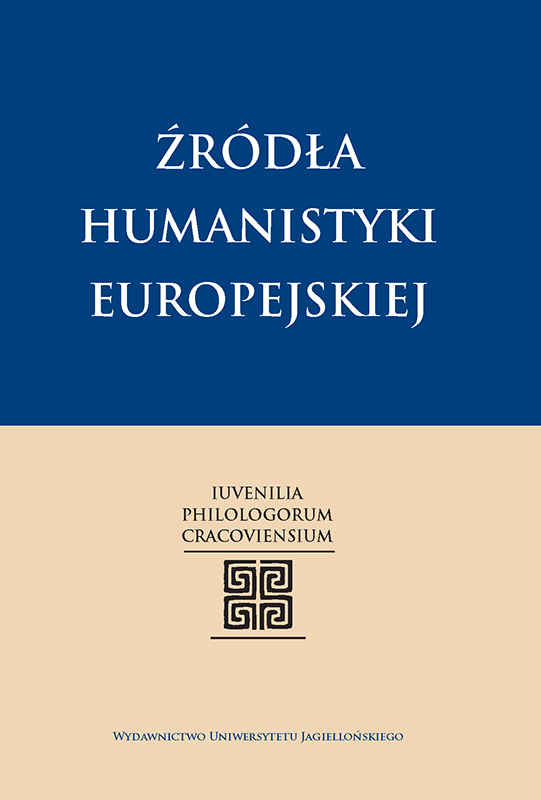„Simulacrum” Lukrecjusza w świetle współczesnej teorii metafory pojęciowej
Lucretius’ „Simulacrum” in the Contemporary Cognitive Metaphor Approach
Author(s): Katarzyna M. GrabarczykSubject(s): Semiology, Cognitive Psychology, Neuropsychology
Published by: Wydawnictwo Uniwersytetu Jagiellońskiego
Keywords: conceptual metaphor; simulacrum; Lucretius (Titus Lucretius Carus); Epicurus; ratio; image, perception;
Summary/Abstract: The purpose of the article is to present how the image simulacrum functions in DRN of a Roman poet – Lucretius. By describing one of three basic elements – which constitute the etymology of the word simulacrum – the similes aspect, it has become possible to connect the idea of the image with the conceptual metaphor theory. Drawing on the cognitive research into the way human perception influences categories and processes of thinking and understanding the world (including the value of the language itself), I have shown that in fact Lucretius’ simulacrum may serve as a cognitive tool or as a kind of a creative adjustment to the sensual material (the atoms and the void), which the Roman author persistently tries to make. Thus he is able to reveal the horrifying infinitude of the reality as well as to give the poetic ratio to his work – DRN.
Journal: Źródła humanistyki europejskiej. Iuvenilia Philologorum Cracoviensium
- Issue Year: 2013
- Issue No: 6
- Page Range: 67-93
- Page Count: 27
- Language: Polish

